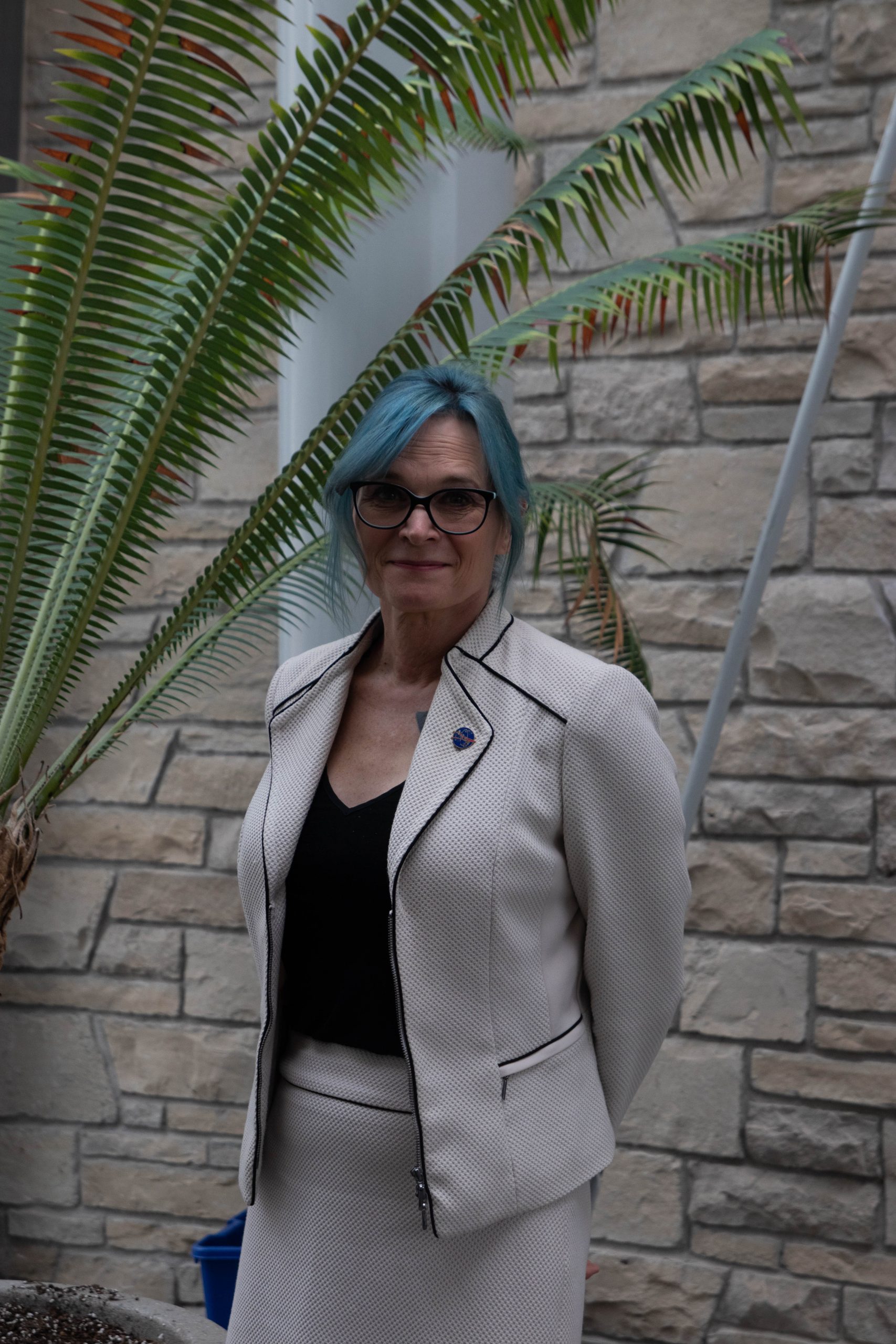It is a daring claim to say we are losing the night sky, but that is precisely what Associate Professor of Physics Megan Pickett declared in her October 2022 TEDx talk.
Pickett has been interested in the stars since her early teen years and has studied them ever since. At the Honors Convocation in 2021, she delivered a speech similar to her eventual TEDx talk. Thanks to its good reception, it caught the attention of the TEDxEdina organizers, and she was offered a spot to apply for. After passing the application and two rounds of auditions, she spent the following summer compressing her main speaking points into the allotted time. Finally, on Oct. 29, 2022, she delivered her speech in the Twin Cities, Minn.
The 16-minute lecture covers in its purest form her concern that we humans—who have interacted with the stars and cosmos since the dawn of our species—are losing access to the night sky. Pickett begins her claim by recounting the great history our kind has had with that above our heads, from how ancient peoples used the stars to guide their travels to how our ancestors left their legacy in the sky by christening constellations. Transcending our cultural differences, she declares we have the night sky as a common muse for artistic, spiritual and scientific endeavors.
“We often hear only of Western European constellations (if we hear of any), and while they are important, every single culture has placed a part of themselves into the night sky,” Pickett says. “We’ve used the night to tell time, to tell our stories, to guide us and to inspire us.”
However, Pickett fears we are “over-lighting” the night, and as a result, fewer people have access to the splendor of this natural resource. While she acknowledges the importance of modernization, she makes a counterclaim against the over-lighting it has brought with it, quoting studies of the harm it can do for the world’s inhabitants, including disrupting bird migration patterns and creating heavy light pollution. Her most compelling counterargument was an anecdote of her own; Pickett recounts the story of her own experiences with the night sky, such as seeing the aurora in Iceland, and how much they have moved her. She lamented that the modern youth would grow up without knowing of all the night’s beauty.
While she illustrates the issue in detail, Pickett’s talk ends with hope for the future. She praises current conservation efforts to keep the night sky accessible, such as designated areas free from over-lighting being set aside across the country. Her thesis to the talk may be that we are losing the sky, but it is also that we still have not completely lost it.
“I’ve come here today not to deliver a eulogy for something that has been lost forever, but to raise a call to arms to fight to bring back the night,” Pickett concludes. “Because the night sky is the one natural resource we all can enjoy simply by stepping out of our own homes and looking up.”
Pickett’s talk was well-received by the audience, who laughed at her quips and engaged with her questions throughout. Still, no group was more supportive than the Lawrence physics students who followed her to the Twin Cities. One attendee, senior Nicholas Magnuson, praised her deep passion for astronomy that he thought was tangible throughout the entire lecture. In tandem with her love for the night sky, he said that Pickett’s talk was thought-provoking for the contemporary person, including himself.
“All my life I accepted light pollution as an inalienable fact about the modern world,” Magnuson said. “It was wild to learn that not even half a century ago a clear view of the stars was seemingly just as permanent as the lack of one today.”
Pickett did not know that her students would attend before the talk. She remembered hearing the cheering as she walked onstage and figuring the support was coming from an audience simply passionate about the night sky. After she finished and was brought around to the back of the auditorium, however, she was overwhelmed by emotion in seeing her students waiting for her.
“I could hardly believe my eyes,” Pickett said. “It was so special, and such a meaningful and thoughtful gesture that I nearly cried. Actually, I think I did.”
The TEDx talk is available on YouTube. Magnuson encourages those who have not seen it to check it out and perhaps learn something from it.



